What does it mean to be healthy?
For so many of us, our answers probably only think of what is physically visible.
But if you ask SaraMae Hollandsworth, you’ll get a different answer, and rightfully so.
As a trainer, athlete and fitness enthusiast, SaraMae spent her entire life physically healthy: running, training, coaching and competing as a bikini model. It wasn’t until a near-death experience during a fight with an infection that she realized that health is a balance of both what’s physically visible and also so many other things that aren’t.
“I think in some ways, while fitness was a lifesaver – which is what the doctor said – while it was a lifesaver, I think it was also a crutch. When things were challenging, I went to fitness to heal and move through it, but our physical bodies are really just the icing on the cake of our lives. There’s the whole mind-body-soul element. … our minds, our spirits, if they’re not well, can really sabotage, ultimately, our physical bodies, and that’s kind of what happened to me.”
SaraMae fought an extremely tough battle with an infection; it nearly claimed her life. She was in a medically induced coma for weeks as she and medical staff tried everything to keep her alive. Through the process, a lack of blood flow to her lower extremities led to the need for a double amputation at the knee.
The road to recovery was an equally hard battle, but SaraMae is now strong as a rock inside and out.
“I think that’s the gift and the irony. I hated it at times, but it can also kind of make me laugh. I was very superficial, to an extent. I mean, I’ve always had a depth to me, but I would not show any vulnerability; that was my most uncomfortable thing to do. So when I had to wear my vulnerability on my sleeves, so to speak, I was like … that was the impetus that made me get right with that. The day I finally was ready to go … I spent, I don’t know, a year, however long, obsessing about how I could hide being an amputee. I wear blades 24/7 – I was like, everyone’s gonna see me. And then it was super freeing, not trying to hide something. That has freed me not just physically but emotionally as well.”
SaraMae has used her experience to help and support other amputees and adaptive athletes as well. She’s helping spearhead a crusade for prosthetics to be included through health insurance, and she’s started a fitness clothing company called Patriot Pups that donates a portion of the proceeds to training service dogs for military and service members. She’s also looking to make a return to running in the Hood to Coast Relay later this year.
Read on to learn more about SaraMae’s story and how she’s become a fierce trailblazer throughout her experience.
***
Tell me a little bit about yourself, and how fitness and sports came into your life.
Oh my gosh, I literally started Sweatin’ to the Oldies with my mom and Richard Simmons! I’d work out in the living room, with all of her fitness tapes, and then it translated to going to the gym. Instead of being in daycare, I liked sitting in class or working out alongside her. My sisters are 10 years older than me and were really into fitness as well. And I’ve always been a runner, for as long as I can remember.
So that’s just kind of ingrained in me – I just can’t really remember a time without fitness being a part of my life. I’ve been a personal trainer throughout my adult life, and I got really into the fitness scene. I went to my first bodybuilding show when I was about 15 and just fell in love with it. I have always been in love with the human physique and what it’s capable of and optimizing it. I did my first bikini competition when I was about 21, and I did them for a couple of years, winning some local shows, then started competing again in 2011 on the national level, and then I almost died a few weeks out from my next show.

What about the world of fitness and bodybuilding and endurance sports like running made you realize that this is the career you wanted to pursue?
For me, it was like a lifesaver. It really was my freedom. It was the place where I felt truly free. I had kind of a challenging childhood, and it was the thing I could do where I didn’t feel bogged down or held back by all of that.
It’s had such an impact on my life. It was the place where I felt strongest, most capable, and that’s really the focus of fitness that I am passionate about as a trainer: how the limits we have are really just the limits that we believe. I’ve really enjoyed training people to do things beyond what they thought was possible in general, but also for themselves as individuals.
So that’s really just the place where I arrived and got to be my fullest self.

Life truly threw you a serious challenge, though. Can you share the details of the health crisis that left you fighting for your life?
I can remember it like it was yesterday because at the time I was training for a half marathon and a fitness competition, and I was finishing my degree in kinesiology and sports psychology in Texas. It was, like, a Saturday. I was training at my boot camp. My clients were working out with me just to kind of keep me going.
I just didn’t feel right. I hadn’t for a couple of days. I know my body really well, and I knew that I wasn’t injured per se, but my energy was off. I was in pain, and I’m someone who, unfortunately, has the capability to push through that. So I kept pushing, and I think I was carrying a 50 pound sandbag on my shoulder up stadium stairs … I remember mid-workout, I finally laid it down, and then I laid down, and I was like, “I’m not OK.”
Then it gets fuzzy. I think it was maybe 24 hours later that I ended up in the ER. I was in excruciating pain. At the time, they thought it was sciatica and sent me home. Then again, about 24 hours later, I just remember coming in and out of consciousness, sweating profusely, and I had this awareness, a feeling like I was dying.
I went back into the ER and almost instantly went into complete organ failure. I was put on life support and placed in a medically induced coma. They said I wasn’t going to make it and to say your goodbyes, like this is it, basically.
I was in a coma for two weeks. They just kept watching my condition. Every time they would try to pull me out of the coma, I’d crash, so it was like a solid two weeks in the coma. Then one day, I just came out, like the smoke cleared. I’d had a heart attack and was in kidney failure. But the medication they used to keep me alive had localized all of my blood flow to my brain and vital organs to sustain life. That’s what made me lose blood flow to my feet, which ultimately caused me to have both legs amputated below the knees.
It was a wild ride. I had my right hip replaced as well. They think, after the fact – my body couldn’t handle diagnostics at the time – when they finally looked at my hip, because that’s where the pain started, they think that I potentially had an infection that started there that then got into my bloodstream. Ultimately, I had an MSSA staph infection that had gotten into my blood and sent me into septic shock.

How did you find the strength to make it through such a difficult time in your life?
It’s still wild to think about, because you know, obviously, I’m used to living in it. But sharing it with you actually took me back to who I was when it happened, and I’m like, for her, that was just unimaginable.
I believe we’re given what we need before we need it. I had a difficult childhood, and well, the beauty of that is that I remember my parents put me in therapy, which I didn’t do all that long, but even just being like, “Oh, this isn’t how it’s meant to be, and it can be different,” just that tiny light bulb sent me on this journey.
As a kid, I would go to the library and walk out with books tumbling out of my arms about neuroscience, personal development, healing and all these things. I was obsessed with it. So while I was a fitness freak, I was also constantly studying how to overcome challenges and be our best selves. I was driven; it was in my spirit. So I had done a lot of work on myself my entire life leading up to this.
And I think in some ways, while fitness was a lifesaver – which is what the doctor said – while it was a lifesaver, I think it was also a crutch. When things were challenging, I went to fitness to heal and move through it, but our physical bodies are really just the icing on the cake of our lives. There’s the whole mind-body-soul element, and I think culture is very focused on the physical, which is so important. It’s like a vehicle. We drive the house we live in. It’s of utmost importance. But our minds, our spirits, if they’re not well, can really sabotage, ultimately, our physical bodies, and that’s kind of what happened to me.
There was this awareness of when it all happened of like I’d paid the piper in some way, like it’s time to really face the music of the things that I was avoiding. When temporarily fitness wasn’t accessible to me, I just had to sit with my stuff and decide to work through it. What’s the deep work that I can do to heal?
For me, losing my legs physically, was my worst nightmare. and then also just my love for movement was the thing that I love the most. I knew it was gonna take everything that I have to overcome, and I just didn’t want to make it work and be OK. I wanted to make myself better and ultimately give me the opportunity to help make others better as well.

What is your approach to both spiritual and physical healing?
I didn’t really have a great support system, which I would have loved to, but also the beauty in it is: It was me versus me. I was like, we have to get through this. I was in a bad relationship at the time, which is a whole other story, but I left that. I really had to move through this by myself, and it was almost like an out-of-body experience where I was able to access a strong, healthy, whole version of myself that really held, loved and accepted, the broken and weak parts. I’m sure that on some level, I sought out fitness to feel worthy, beauty, importance, all the things as humans we desire that we already are.
We don’t need those external things, but culture is very externally focused. When I suddenly wasn’t all the things – I wasn’t the fitness bikini model, I wasn’t the stud athlete or fitness professional … I really just got to decide to accept myself honestly and sit with myself and face off with those parts that don’t feel worthy for whatever reason. I was always known for my body physically in a positive light, so it was very scary for me to be looked at in any other way.
I’m still so grateful that some amputees came before me and made it look really strong. I had to search for that. It wasn’t as prevalent as it is now. I reached out, and people were really gracious and awesome. I built a bulletproof vision in my mind; a new association of that.
I was tempted to attach to the old stigma, but I became really internally strong with the vision of myself in my new self as Sara, an amputee and adaptive athlete, before I really went out into the world. People react to you, how you feel about yourself, right?
So I was like, I have to get myself right with this before I go out into the world because I know it would be really hard on me if people pitied me or looked any sort of negative way on me. And now I don’t care. It doesn’t impact me because I’m rock solid inside myself.

You mentioned how the fitness space is so obsessed with physical health and appearance. What is the most important message you want others to take away as to why mental and spiritual health is so crucial to well-being?
I think that’s the gift and the irony. Everything is so symbolic. I hated it at times, but it can also kind of make me laugh. I was very superficial, to an extent. I mean, I’ve always had a depth to me, but I would not show any vulnerability; that was my most uncomfortable thing to do.
So when I had to wear my vulnerability on my sleeves, so to speak, I was like … that was the impetus that made me get right with that. I think we spend so much energy trying to protect our insecurities, the things we don’t want people to know, that we don’t want people to see, and we try to build up these personas of ourselves as strong, beautiful, successful, whatever the thing is.
I’m kind of bummed I didn’t take more photos of myself in the nitty gritty of it. It felt horrific at the time. But I think even showing some of those, when my body was at its most unattractive and at its most broken and most vulnerable, the visual kind of helps us. Obvious examples help me kind of suss out the more hidden aspects of that. Being willing to show that version of myself is a way to help others disarm what they’re trying to hide to feel a certain way.
I think you can see this happening more. There are a lot of different teachers who are really speaking on transparency and vulnerability: These are the ugly parts of me that I don’t want people to see and know. That’s the shadow work they’re talking about making ourselves OK with and accepting. It gives us the ability to show love and compassion for that within and for other people as well.
And we just exhale. It is the most freeing thing. The day I finally was ready to go … I spent, I don’t know, a year, however long, obsessing about how I could hide being an amputee. I wear blades 24/7 – I was like, everyone’s gonna see me. And then it was super freeing, not trying to hide something. That has freed me not just physically but emotionally as well.
I spent my whole life chasing perfection to find out it was a lie. The freedom and strength came in embracing the imperfections. We’re flawed; we’re human. It is what it is.

I want to dive more into the idea of being a Trailblazer and a role model, because you’ve absolutely become a very strong, standout leader in this space. How has it been transformative to you as a person, as well as to others?
I don’t know if it’s because I’ve always just been in the personal development world or if it’s the trainer in me, but I have this sense of duty to positively impact people.
I have this awareness that because of the visible nature of my journey, I’m representing a community, but also just an aspect of all of us, so I do my best to embody the strength and what we’re capable of, and how resilient we are just in how I move through the world, and then I do my best to share and to be transparent and vulnerable, which, again, is not my natural way. I’m very private, so I do my best to share in that way.
I’m grateful for that. Even when I think people don’t care, people will reach out to me. Sometimes it’s amputee related, or someone is going through something, and I get to be there in whatever capacity to support.
It does my spirit a lot of good to support people, both through struggles and through strengths. That’s a big gift. I’m leaning into more advocacy work. Currently a group of us are working to get legislation amended to get insurance fairness and also to include orthotics and prosthetics to be deemed as medically necessary so that they’re covered, which they currently aren’t.
I’m really excited for what I’m currently working on. It’s called So Oregonians Can Move. They’ve initiated it in other states, and we’re joining that charge now. It feels like a full circle moment. Having been an athlete and fitness professional all of my life from Oregon, to now advocating for fair access to movement for adaptive athletes and individuals. It's poetic within my spirit.

What advice would you give to someone who is scared of undergoing a radical change, whether that be forced through an injury, or just a transition through a period of going through a life path they weren’t expecting.
That’s such a good question. I know how heavy it is and how much there is to it. I think the biggest thing is: You’re not going to have or be everything that you need to walk through it all in any given moment, so it’s easy to feel like you can’t do this. But all you truly need is the breath of the moment that you’re in and to do your best to stay in it, and to know that you’re supported just by life and yourself.
The more that you can really support yourself through it, you will feel that reflected outside of you as well. But it is also important to ask for help when you need it, no matter how hard it may be.
Just take it moment by moment. I mean, there was a year, if not more, where I spent the majority of the time in the fetal position because that’s just where I was at moving through the physical journey. I had to find worthiness with wherever I was in any given moment. You cannot judge the moment you are in. Whatever you have to do to be OK.
I think a lot of times the wheels fall off our life when we make a change, knowing that that’s kind of an in-between. You are going to build a big, beautiful life again, and it will likely take time. We can choose it. Understanding that you can come out better on the other side and to give yourself whatever you need to get through each moment.
So I know that you’re a dog lover, you have a pup named Tex, and you founded Patriot Pups – tell us more about that venture.
It’s inspired by my boy, Tex. I wanted a service dog ever since all this happened. I was diagnosed with PTSD and a few other things. Animals are so healing. It was just kind of on the radar. I didn’t technically think I was ready but some friends had a litter of puppies and I saw a photo and fell in love. My spirit knew that this was my dog. So I got him, and I’m training him to be my service dog. I’m obsessed with dogs! Let’s be honest – I will have playdates with my friends’ dogs more than I hang out with them. Getting my own was probably a good idea.
My heartache is animals suffering, and I’ve heard there’s purpose in the things that make your heart break, and I’ve always wondered what I can do for animals. I’m very passionate about the veteran community, and Tex brought the dog thing full circle. I created this fitness brand, Patriot Pups. A portion of the proceeds go to help train rescue dogs to be service dogs.
I founded it in January of this year – it’s a new baby. It’s been a fast-moving couple of months, but it’s so fun. I saw a firefighter and his service dog ordered a dog bandana and t-shirt. That’s what this mission is about. It was really cool that I reached exactly who I’m doing the work for.
How did you find Athletic Brewing and the ambassador program?
I’m into CrossFit, and there’s so many ambassadors that I’ve seen as a part of it, and I’m very social – I’ve recently heard the term social fitness, and that just sums me up. I enjoy grabbing a beer with people after a workout, but I don’t necessarily want to drink every day. I thought [Athletic] was such a cool concept. There’s long periods where I don’t drink at all, so I love that it’s something that everyone can enjoy. And of course, it’s a bunch of like-minded, awesome, fitness-loving, active, healthy individuals, so it’s really an honor to be a part of that.

What are some of your proudest achievements?
Oh my gosh, there’s so many. One super proud moment was when I crewed for someone at the Badwater 135. It’s the world’s toughest foot race. It’s a 135 mile ultramarathon in Death Valley in July. I was asked to crew that, so it was cool that I was at the world’s toughest foot race and I didn’t have feet. That was an honor to be a part of. Plus,coming back from near death, you know, it kind of felt like climbing out of this never-ending, Grand Canyon type of experience, like climbing out of the desert and being in the middle of Death Valley. It was a very spiritual experience.
And then I’m really proud of all the advocacy work I’ve started to do. I’ve had a hard journey through this and out of this, and I’m proud because it’s made me very resilient, and I’m not great at asking for help or reaching out, so I get that. Just saying, “How can I make the road ahead easier for those who come behind me?” is something I’m super passionate about. I’ve started a nonprofit to help warriors and disabled civilians heal, and that’s what I’m currently working on.
It feels like my life’s work. I was introduced to the military community early on and almost joined the Marines straight out of high school, so that community’s always had my heart, and then now, it’s full circle. It’s even more impactful having lost my legs, getting to know a lot of amputee veterans and wounded veterans and first responders, and having done that healing work and getting to share that with them is really meaningful. It assigns meaning to an unimaginable loss.
Do you have any bucket list races, events or achievements that you’d like to attain one day?
I’m excited to do the Hood to Coast Relay without feet. Having run it many years ago, I was really excited to be invited to do that this summer. As far as other races, it depends on which me is running the ship. Badwater 135 would be amazing, but part of me is like we don’t need to do something that nuts. … I do have a desire to complete the Bataan Memorial Death March someday.
The Boston Marathon, that’s definitely one. I got to go out there and speak on behalf of the Heather Abbott Foundation because I was a recipient of high heel legs from her, and that was a very incredible experience. Being a runner, and being there and getting to be a part of it with one of the victims of the bombing was very insightful.
The community was unbelievable. One of the runners who was running to raise money for her foundation ended up injuring her knee. She was maybe a couple of miles out from the finish line. We were waiting and wondering where did she go? A few of us ended up looking for her, and I got to run her back in. It was this really emotional moment. I actually hadn’t really started running again, but I ran to run her in. That has really left a mark on me.

Tell me more about the Hood to Coast Relay race.
My sister is 10 years older. She was a marathon runner at the time, and her friends would do this Hood to Coast team, and I would go to support. I wanted to be a part of it. I did my first Hood to Coast race when I was 16. I recruited my high school track and cross country teams to do it with me. I did it all throughout high school, a year or two after … 4 or 5 years straight we did it.
It’s hands down my favorite experience that I’ve had physically. There’s all these different terrains that you run, and you see pro teams like Nike and Adidas. Last year was the first time an adaptive team did it, and I had massive FOMO. But when I was asked to spearhead this initiative for the insurance fairness, I was like, we’re gonna do [this race] to help raise awareness for that. There’s all kinds of troubleshooting stuff with my legs. I don’t know. We’re going to see how it goes and what I need to make it work. I was always wondering how I would do it. Now I’m just going to train and I’ll figure it out as I go.
Our team is 12 people, and there’s 2 vans with 6 people in at all times. Typically you have 3 legs between 3 to 6 miles on varying terrain. The harder the terrain, the shorter the leg. Sometimes you’re coming off Mount Hood, sometimes you’re in downtown Portland, others you’re running on the coast, it’s just all over. Then you jump back into a van where you’re cramped. Then it’s your turn again. It’s around 24 hours start to finish. Then everyone finishes seaside, and there’s a big celebration on the beach.
What’s your favorite recovery food?
I’m seriously the worst about eating, but tacos! Tacos for everything. And I'm a big sweet potato girl.
I stress about eating enough. I think it’s the training for fitness competitions. I don’t have a big appetite, but we have to eat by the clock basically to hit our needs, so I’m shifting into that again. It’s been my biggest struggle. It was then, and it is now.
I’ve probably never eaten enough to be as muscular and strong as my body could and would want to be. So I’m really trying to do that this go-round because you can have injuries, get sick, different things like that if you don’t, and I want to support my body, which means eating more than I want.

What do you like to do on rest and recovery days?
I love infrared sauna. I could live in that. I’m starting to incorporate some cold therapy, which I don’t like as much. I do active recovery a lot. Walking Tex and rucking is such a great balance for me. I didn't love just walking before, but I appreciate walking more now with my dog, in nature, with weight on my back, just enjoying it. It keeps me recovered and balanced.
What gets you up and out of bed every day?
I’m just excited to crush it, to be honest. How can I be better today? What can I do to impact the most people today? It just excites me. I think it also, selfishly, minimizes the suffering. You’re like, this was all worth something, because the suffering was really bad. There’s no rose-colored glasses. I fought then for what I would be able to do now, so it’s just kind of the payoff of that. It almost feels like going back in the timeline and helping heal the me that was in the thick of the pain, if that makes sense. It’s like I’m paying respects to her pain by trying to live well and help others with it.

What does it mean to be a Trailblazer?
Blazing the trail. As a runner, there’s those that like to front run and those that like to draft. I was always the front runner. I get that the drafting might be more efficient, but there was something mentally in my spirit where I want and need to be in the lead.
In the relay, I was the anchor, so I guess that says a lot about me as a person. I like to come up from behind and win in any capacity. But now, it’s stepping into that advocacy and changing how things are done instead of trying to make the best of how things are.
I’m on a mission – how can we change things for the better for those now, and for those who come after and struggle in similar areas.
If you’re interested in joining the ambassador program, visit our Ambassador Community Page and sign up to be notified when applications open!
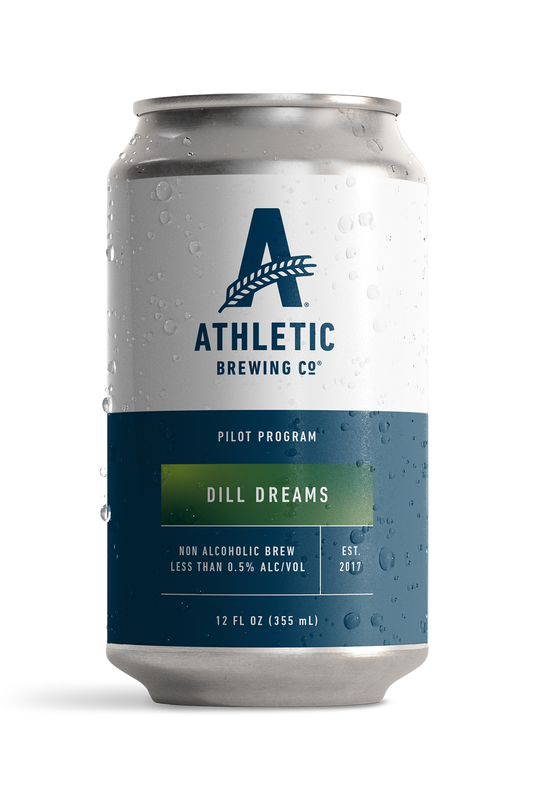

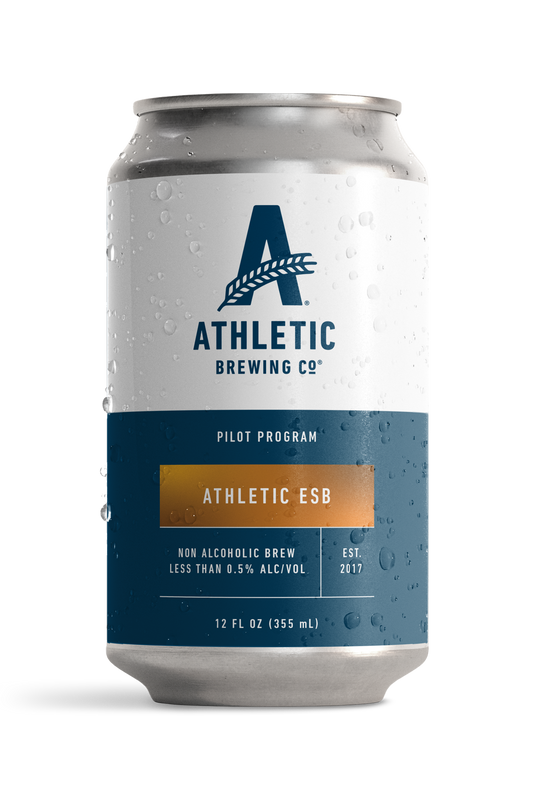
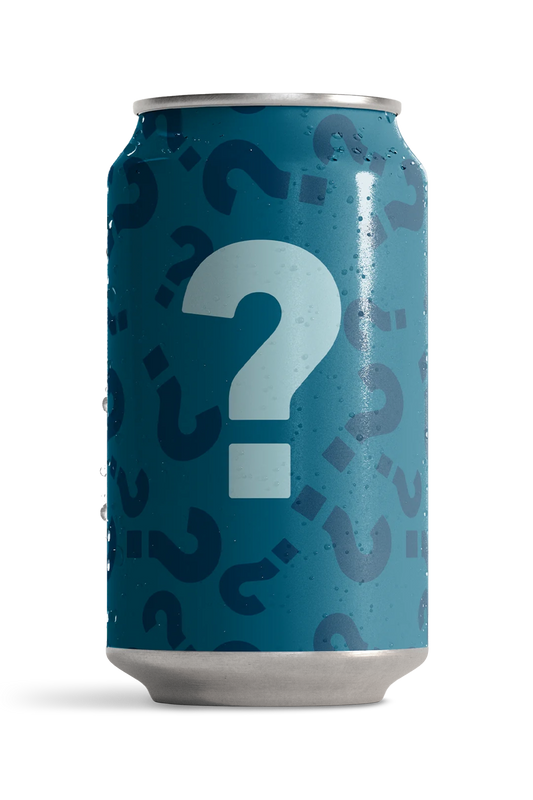
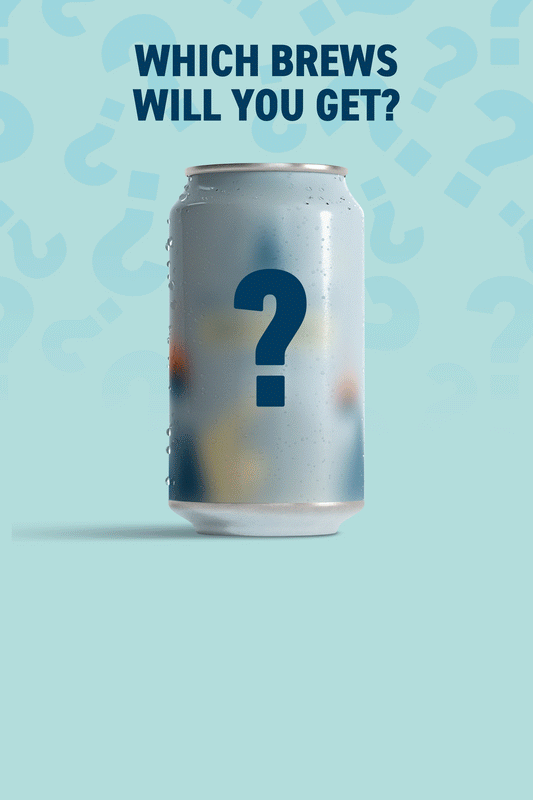
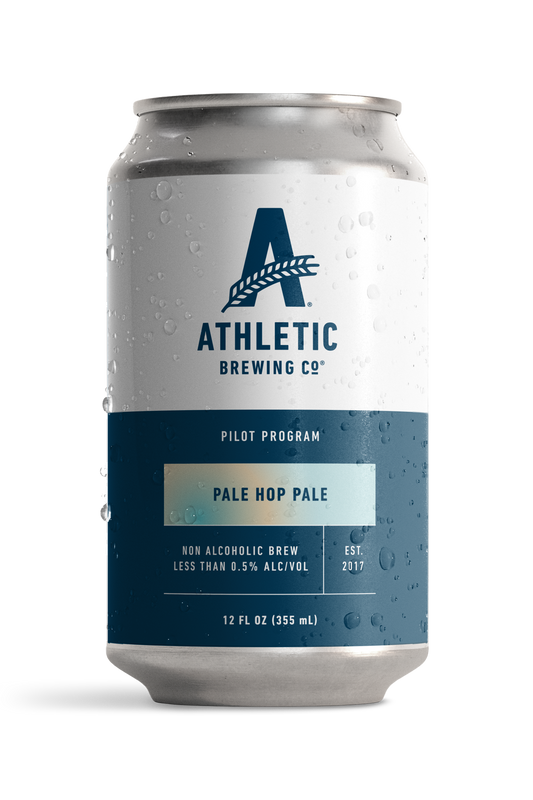
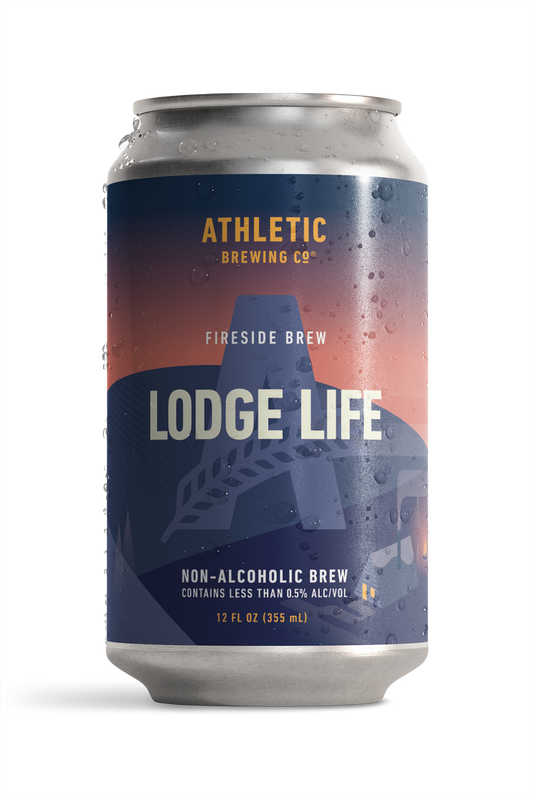
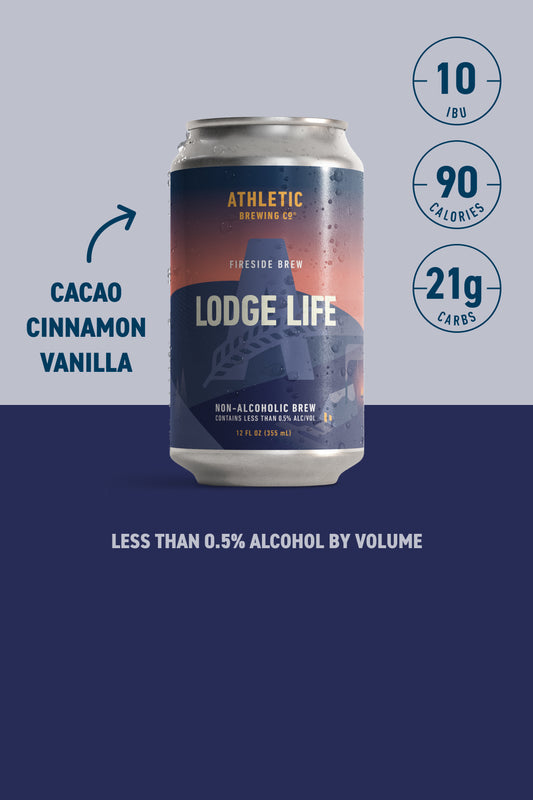
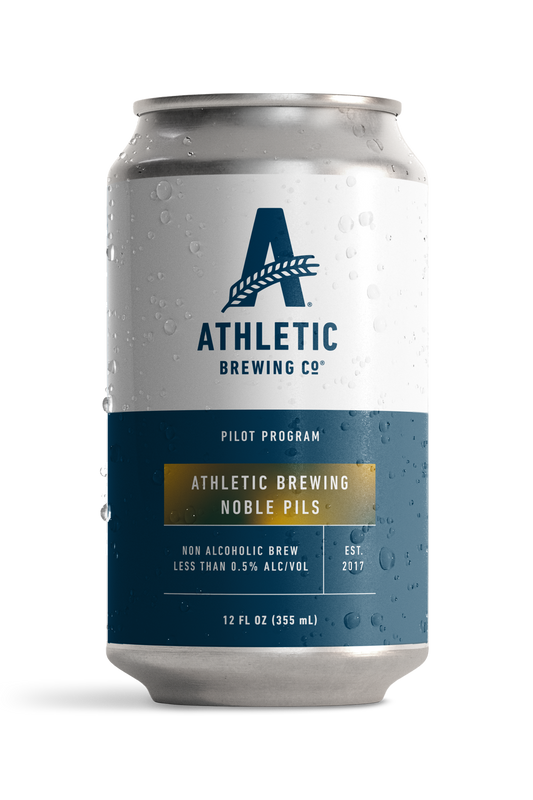

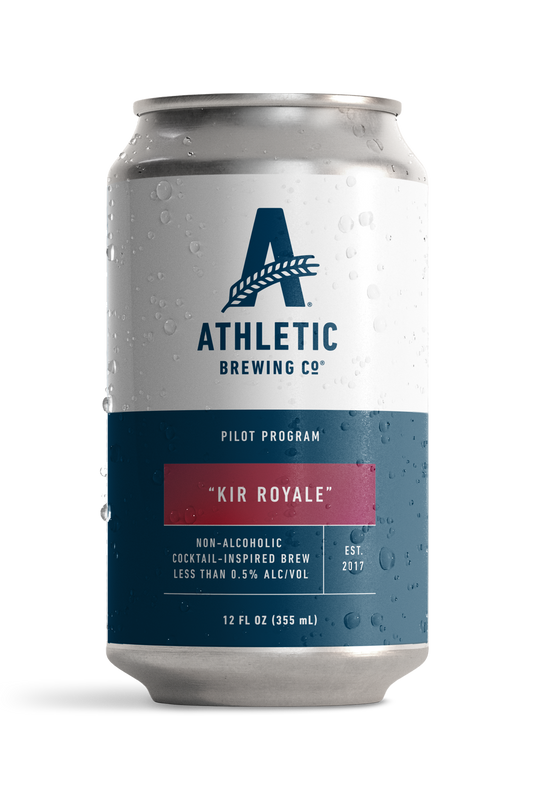

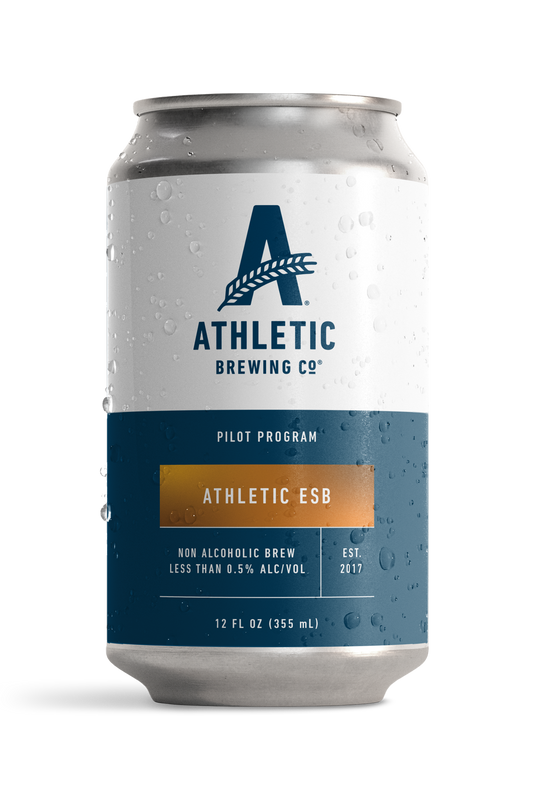
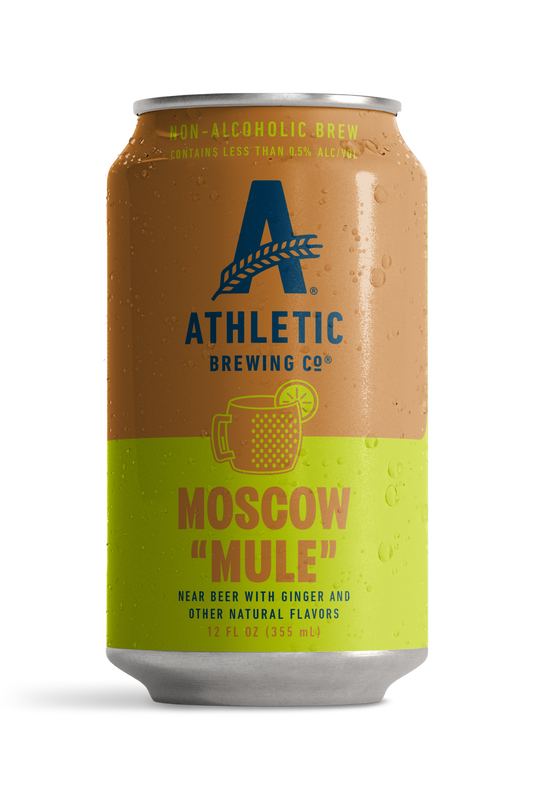
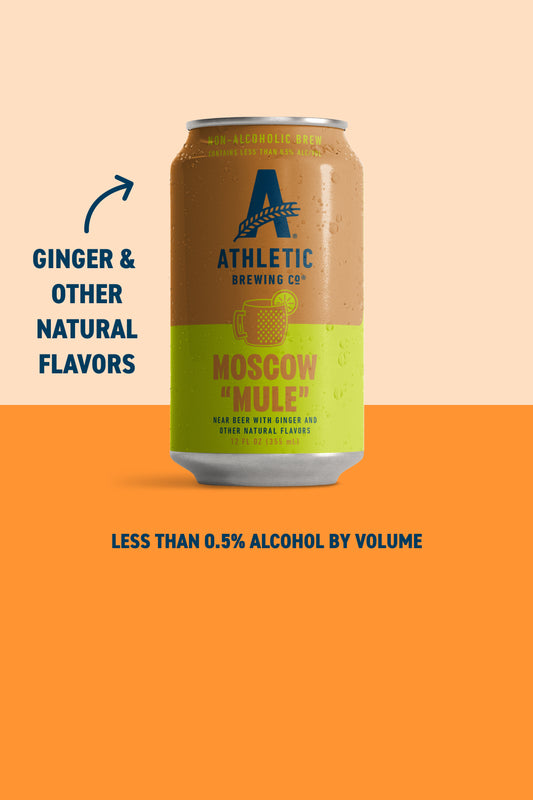
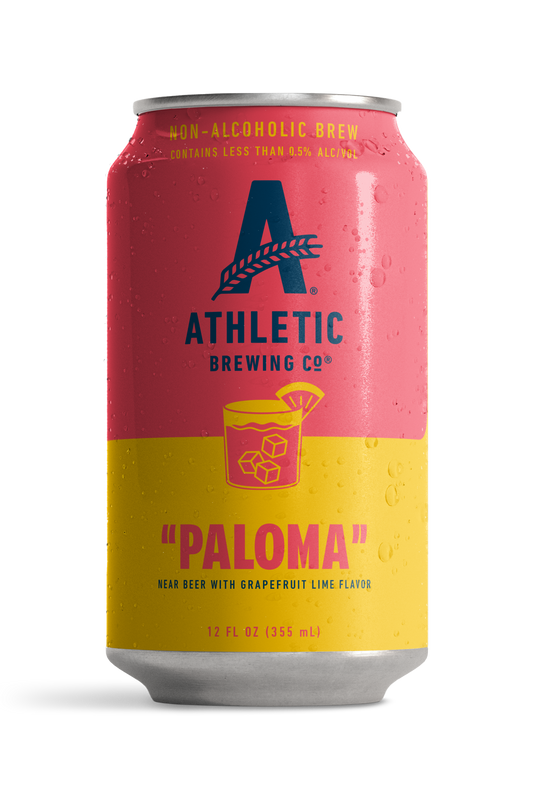
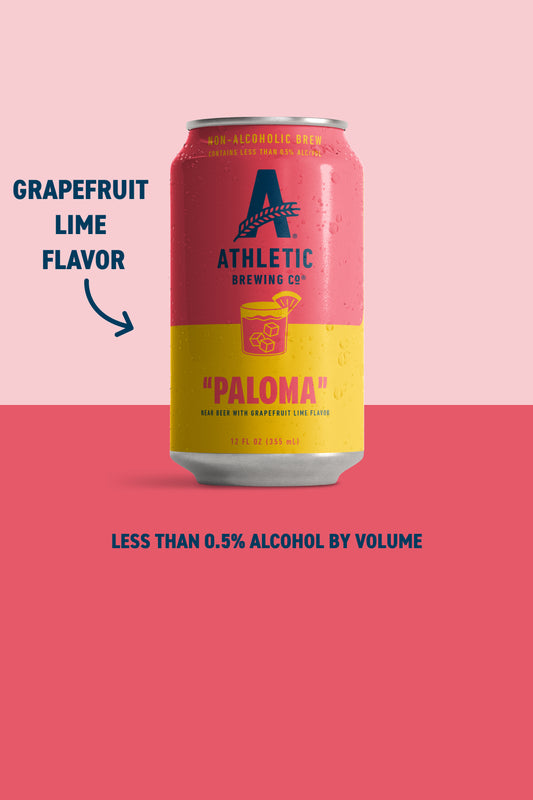
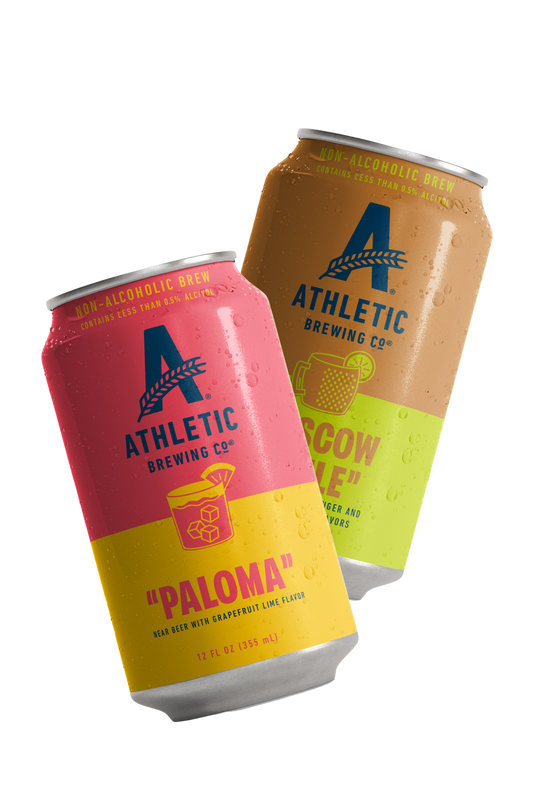
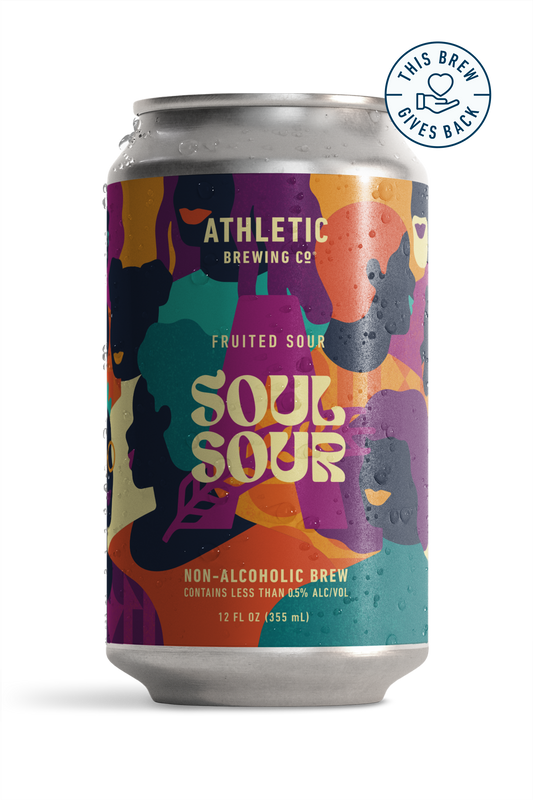
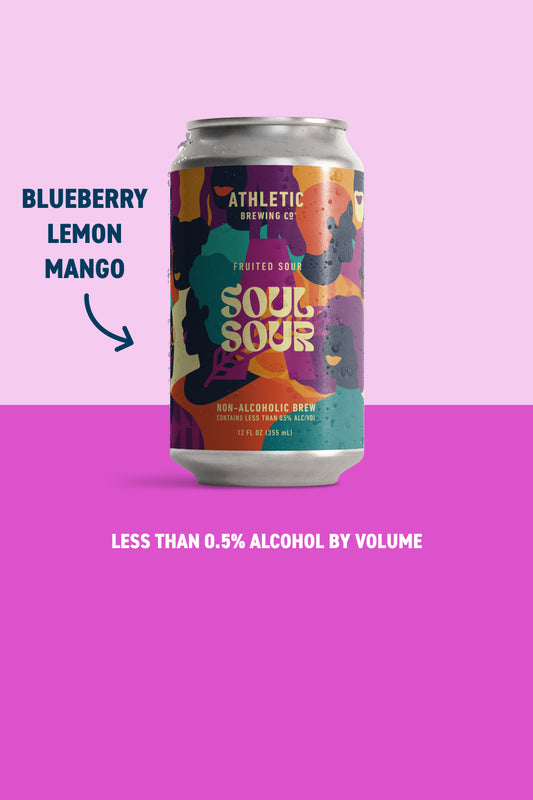









 Your Privacy Choices
Your Privacy Choices







